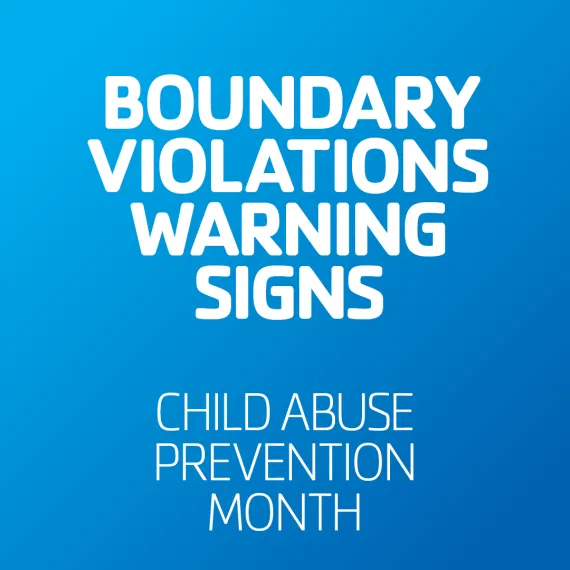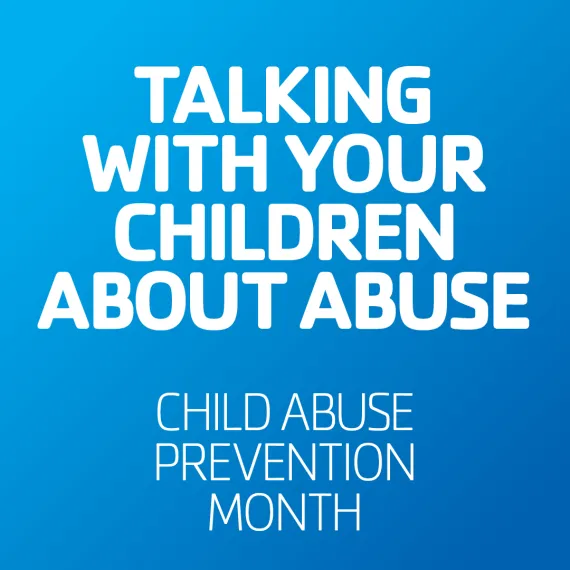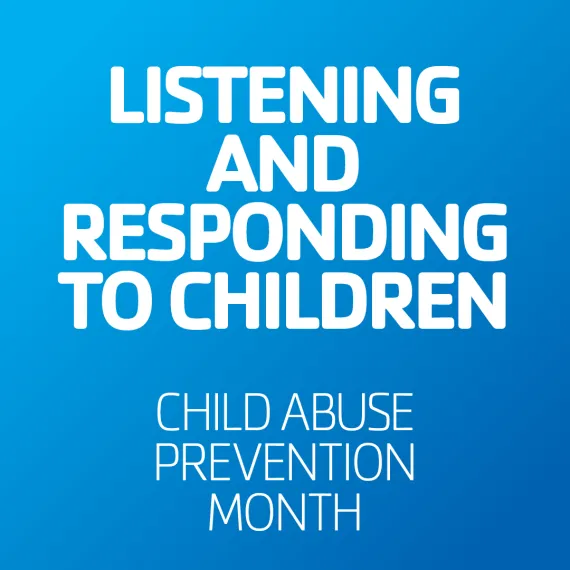Child abuse and neglect are a serious public health problems. According to the CDC, 1 in 7 children have experienced child abuse and/or neglect in the past year. At the YMCA of Metro Denver, nothing is more important to us than the health and well being of your child.
April is Child Abuse Prevention Month and we are offering tips and advice for parents and caregivers to help prevent and spot child abuse.
We take pride in the measures we’ve taken to create safe spaces for youth to learn, grow and thrive. Here are some tips for parents to know as we work together to keep kids safe from abuse.
-
Know who has access to your children. When your children are at school, what are the school’s procedures for screening staff, volunteers, parents, etc.? When your children attend a sleepover, who will be in the home?
-
Know what type of privacy is allowed. When your children play sports, can the coach be alone with a player? When camp is over, can the counselor text your child?
-
Know how offenders gain control through boundary violations. Physical boundary violations might be excessive tickling, hugging or massaging. Emotional boundary violations might be spending too much time with them; acting possessive; sharing personal information to make a child feel they have a special relationship. Behavioral boundaries could be an offender manipulating kids into doing things they wouldn't otherwise do like sneaking around and keeping secrets.
Many parents and caregivers find speaking to their children about abuse to be uncomfortable. But, framing conversations around safety may help you work through some of that uncomfortableness. Here are some age-appropriate ways to talk to your child:
-
Young Children
Start these conversations simply by ensuring young children know the correct names for their body parts. Help your child learn that parts of their body are private and that only their parents/caregivers can see them. Don’t forget to note that doctors may see them naked but only because you’re there with the doctor!
Talk about boundaries both for your child and for others. When a child doesn’t want to hug a relative, or during a tickle fight a child can yell “Stop!” which allows them to set their own boundaries. It also teaches body autonomy and helps children know when something makes them uncomfortable so that they can speak up.
-
Teens
Keep lines of conversation open as children grow so that they feel comfortable talking to parents or trusted adults if something happens to them or a friend. Talk about their friends, the other adults in their lives, texting and social media. Teens need to know to not accept requests from people they don’t know, how to respond if someone (even a friend) asks them to send nude photos and that conversations online are never truly private.
Let your children know that you are there to listen and support them.
Lastly, it’s important that all parents and caregivers know how to respond to boundary violations and warning signs if children tell you about abuse.
At the Y, we are mandated reporters, so we have procedures in place for responding and reporting suspected abuse. As a parent, you can follow these steps:
-
Keep your eyes and ears open.
-
Talk with your child.
-
Ask your child about any concerns you have.
-
If what you learn from your child or what you have observed/overheard sounds like abuse, call Child Protective Services or the police.
-
If what you've heard or observed sounds like a boundary violation, suspicious or inappropriate behavior, or a policy violation: share your concerns with the employee/supervisor/person in charge of the organization. If you are unable to do this, make a report to the organization by making a call, sending an email or submitting an online form.


